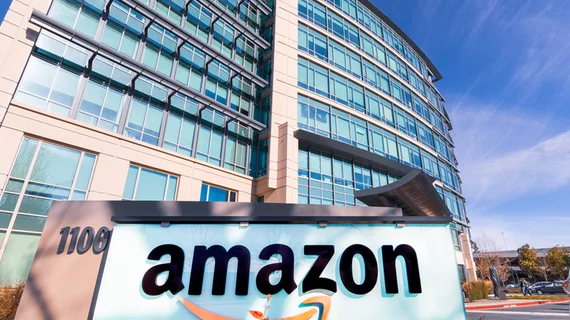Amazon closes $3.9B acquisition of One Medical
E-commerce giant Amazon has completed its $3.9 billion acquisition of One Medical, a primary care provider.
The closure of the deal comes after Amazon faced some backlash toward the acquisition, with some arguing the move gives the retailer too much power. There have also been some rumors that federal authorities would try to block the deal on antitrust grounds. However, the companies have closed the deal, with Amazon now owning One Medical’s in-office and 24/7 virtual care services, on-site labs, and programs for preventive care, chronic care management, common illnesses, and mental health concerns.
“Together, Amazon and One Medical look to deliver exceptional health care to more people to achieve better health outcomes, better care experiences and more value, within a better care team environment,” Amazon announced Wednesday morning.
With the deal completed, One Medical is offering annual memberships for $144 for the first year, instead of $199/year, or $12 per month to new customers. Patients who use One Medical have access to the company’s app and on-demand virtual care services, including 24/7 video chats and in-app messaging that are included in the membership price. Additionally, patients can access same and next-day in-office or remote visits, walk-in availability for on-site laboratory services and convenient office locations.
The deal brings Amazon further into the healthcare provider space after the company closed its own Amazon Care clinics at the end of 2022. Amazon has been ramping up other healthcare offerings, including launching a new virtual care service and continuing to expand its pharmacy business.
“If you fast forward 10 years from now, people are not going to believe how primary care was administered,” Amazon CEO Andy Jassy said in a statement. “For decades, you called your doctor, made an appointment three or four weeks out, drove 15-20 minutes to the doctor, parked your car, signed in and waited several minutes in reception, eventually were placed in an exam room, where you waited another 10-15 minutes before the doctor came in, saw you for five to ten minutes and prescribed medicine, and then you drove 20 minutes to the pharmacy to pick it up—and that’s if you didn’t have to then go see a specialist for additional evaluation, where the process repeated and could take even longer for an appointment. Customers want and deserve better, and that’s what One Medical has been working and innovating on for more than a decade."
According to Amazon, One Medical is different from other primary care providers or urgent care practices due to its accessibility and near on-demand services, “allowing members to seek care when and where it’s most convenient to them,” the company stated.
“We're on a mission to make it dramatically easier for people to find, choose, afford and engage with the services, products, and professionals they need to get and stay healthy, and coming together with One Medical is a big step on that journey,” Neil Lindsay, senior vice president of Amazon Health Services, said in a statement. “One Medical has set the bar for what a quality, convenient, and affordable primary care experience should be like. We’re inspired by their human-centered, technology-forward approach and excited to help them continue to grow and serve more patients.”

